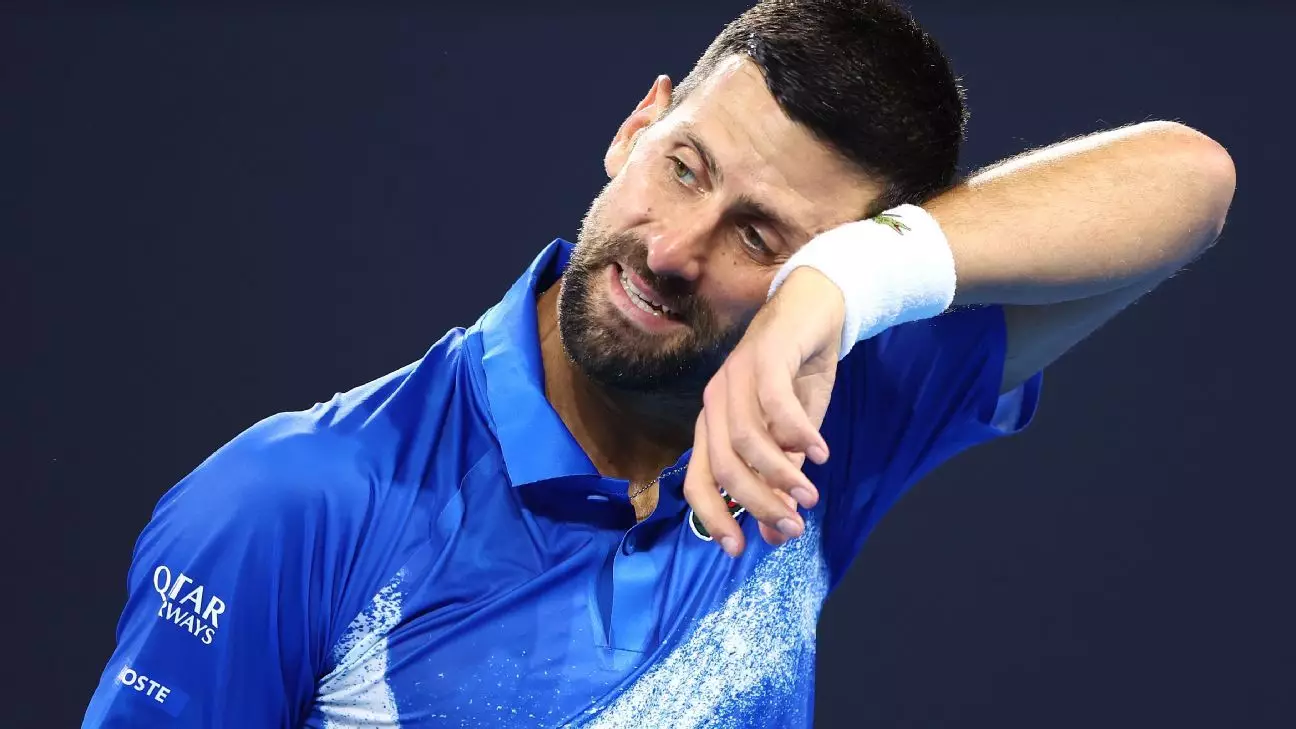Three years after being embroiled in one of the most publicized controversies in tennis history, Novak Djokovic’s emotional landscape remains tumultuous whenever he sets foot in Australia. In 2022, he faced expulsion from the country due to his refusal to receive a COVID-19 vaccine, which acted as the catalyst for a legal battle that unfolded before the Australian Open. The memories of being detained in a hotel for five days, just days before a major tournament, have not faded entirely for the tennis icon, showcasing the psychological toll that such experiences can incur.
Djokovic’s account of feeling “trauma” upon returning to Melbourne underscores a deeply personal aspect of his professional life—one that many underestimate. The mental imprint of anxiety lingers as he navigates immigration processes, where the shadow of past detainment looms large. Even as he successfully defended his title in the subsequent year, the question of whether he would be welcomed or scrutinized remains a source of unease that colors his experiences.
The emotional scars left by the Australian incident not only impact Djokovic personally but also highlight the broader implications of public scrutiny in professional sports. The media frenzy surrounding his deportation amplified the stakes for the athlete, turning a personal health choice into a national debate. For an athlete of Djokovic’s caliber, who has consistently ranked among the best in the sport, the fallout from such a public dispute illuminates the complex relationship between personal beliefs and public expectations.
Moreover, Djokovic’s capacity to express his feelings candidly serves as a reminder of the weight that celebrity athletes bear. While he proclaims that he holds no grudges against Australia—a country that embraced him as a champion for so many years—the psychological ramifications of his treatment cannot be easily dismissed. This scenario raises important conversations about the mental health of athletes and the depth of their lived experiences beyond the court.
Upon winning the Australian Open title again, Djokovic experienced a rush of emotional catharsis. He noted the importance of sharing that moment with his family and team, emphasizing how personally and psychologically momentous it had been to reclaim a title after such a tumultuous prior year. His victory was more than just a professional achievement; it was a statement of resilience.
Yet, this apparent triumph sits atop a complex sea of feelings. The juxtaposition of winning against the backdrop of distress showcases the duality athletes often navigate—a public façade of success masking underlying emotional challenges. As he prepares for future tournaments, it is clear that Djokovic’s relationship with Australia, while marked by professional accolades, is also fraught with the echoes of his past experiences.
With the Australian Open approaching again, Djokovic’s forthcoming appearance in Melbourne invites both anticipation and apprehension. While he has emerged as a record-holding champion, the scars from the past remind us that the journey of an athlete is far from linear. As he confronts his fears each time he crosses the border, Djokovic embodies the resilience required not just to compete at the highest level but to navigate the emotional complexities of being a public figure in a highly scrutinized environment. The immense pressure to perform, coupled with the weight of personal history, ensures that his path remains a compelling narrative as he continues to write his story on and off the court.


Leave a Reply